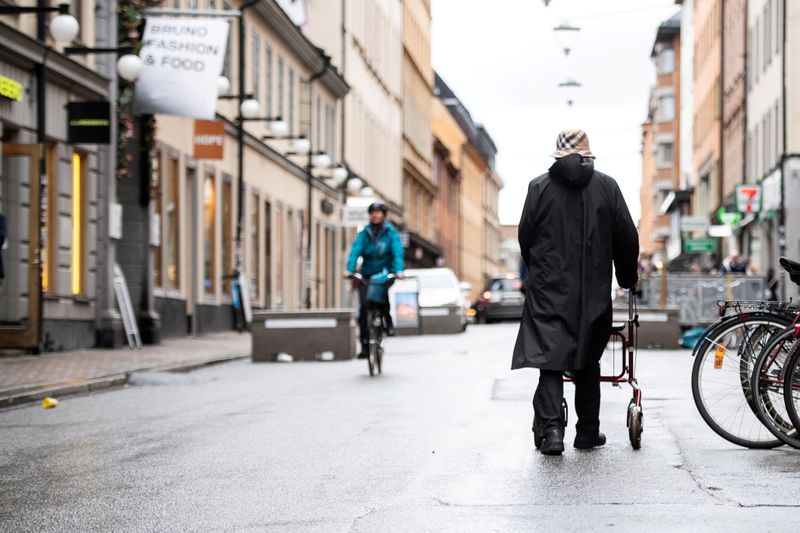By Johan Ahlander and Anna Ringstrom
STOCKHOLM (Reuters) - Sweden's economy will grow substantially faster than previously expected this year, as it bounces back from the effects of the COVID-19 pandemic, the government said on Wednesday.
The hit to Sweden's economy from the pandemic has turned out to be milder than first feared in 2020, when GDP shrank 2.8%.
The recovery has also been quicker, despite concerns over shortages of input goods and transport bottlenecks that have hit the export sector.
"We can revise up growth for this year," Finance Minister Magdalena Andersson told a news conference. "We had the strongest growth in the Nordic region in the first quarter. The labour market is strengthening and government finances are improving."
However, Andersson warned that the current political uncertainty could damage prospects. Swedish Prime Minister Stefan Lofven lost a vote of no-confidence in parliament on Monday and has a week to decide whether to resign or call a snap election.
"It is clear that political uncertainty can have an adverse effect," Andersson said. "It is clear that there is a risk."
The centre-left and centre-right blocs in parliament are evenly balanced with no clear alternative to Lofven's minority coalition of the Social Democrats and Greens. Opinion polls suggest little would be changed by a new election.
VOLUNTARY MEASURES
Sweden's strong economic performance through the pandemic has, in part, been due to a response based more on voluntary measures focused on social distancing, than the kind of strict lockdowns adopted across much of the continent.
But its heavy reliance on industry, with a smaller services sector, has also helped.
The government said gross domestic product would expand 4.7% in 2021 against 3.2% growth predicted in the previous forecast, made in April. Andersson said she did not see signs of overheating.
In 2022, growth is seen slowing to 2.9%, versus a previous forecast of 3.8% growth as a result of the quicker recovery this year.
In a separate forecast, the National Institute of Economic Research, a leading think-tank, said it saw growth this year of 4.4%.
The government has pumped more than 400 billion crowns ($47.19 billion) into the economy in measures such as furlough schemes to see it through the pandemic.
However, Sweden's finances remain strong with debt expected to be around 38% of GDP this year against around 90% across the European Union.

The government's forecast showed public finances running a deficit of 2.2% of GDP this year, compared with the previous forecast of a deficit of 4.5%. Finances should be balanced again by next year, the government said.
($1 = 8.4772 Swedish crowns)